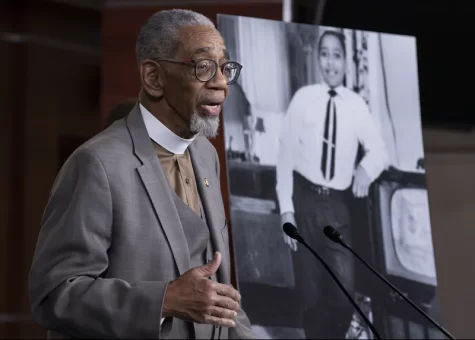
Ben Meyler | Writer
March 10, 2022
On Monday, after 122 years of failure and over 200 attempts, the Senate unanimously passed a federal anti-lynching bill. The Emmett Till Antilynching Act will allow crimes to be prosecuted as a lynching if a victim is killed or injured as a result of a hate crime, and will be sent to President Joe Biden to sign into law. It is named after the 1955 incident where a 14-year-old African boy whose brutal murder in Mississippi sparked a civil rights movement. The bill would allow the United States to prosecute these cases as a federal crime.
“It is important to differentiate hate crimes from other crimes because people who commit hate crimes are not only threats to their immediate victims but also threats to others like them (i.e. race, religion, etc.) out of prejudice towards those demographics,” said San Clemente High School junior Amanda Cabagbag. “Differentiating between the two helps law enforcement better understand the dynamic of certain environments and help them provide better resources to counter those systemic biases.”
Over 4,000 people, mostly African Americans, were reported lynched in the United States from 1882 to 1968. U.S. Representative Bobby L. Rush compared lynching to the “French use of the guillotine, the Roman use of crucifixion, and the British use of drawing and quartering as a tool of terrorism” in a floor speech before the vote.

In 1900, the only black member of Congress, Representative George Henry White, a North Carolina Republican, introduced the nation’s first anti-lynching bill, but it died very quickly in committee. Time after time, these bills kept getting shut down. Even now, three Republicans opposed the bill, including Representatives Andrew Clyde (Georgia), Chip Roy (Texas), and Thomas Massie (Kentucky).
“Lynching is an evil act of violence that is already against the law at the federal level; it is first-degree murder,” Clyde stated. “Furthermore, my home state of Georgia recently signed hate crime legislation into law this past year. H.R. 55 would create no new federal offense and the current hate crime criminal code already establishes penalties for willful bodily injury to another person.”
“I can’t seem to grasp why it was so challenging for some Congressmen to acknowledge this bill for what it is,” senior Sydney Kennedy said. “There was no reason for this bill to take over a century to pass and I wish George Henry White along with other Representatives who were involved in this long process who are no longer with us could’ve seen this for themselves.”
The bill now lies on Biden’s desk, where he’s expected to sign it within the upcoming days.

Leave a Reply